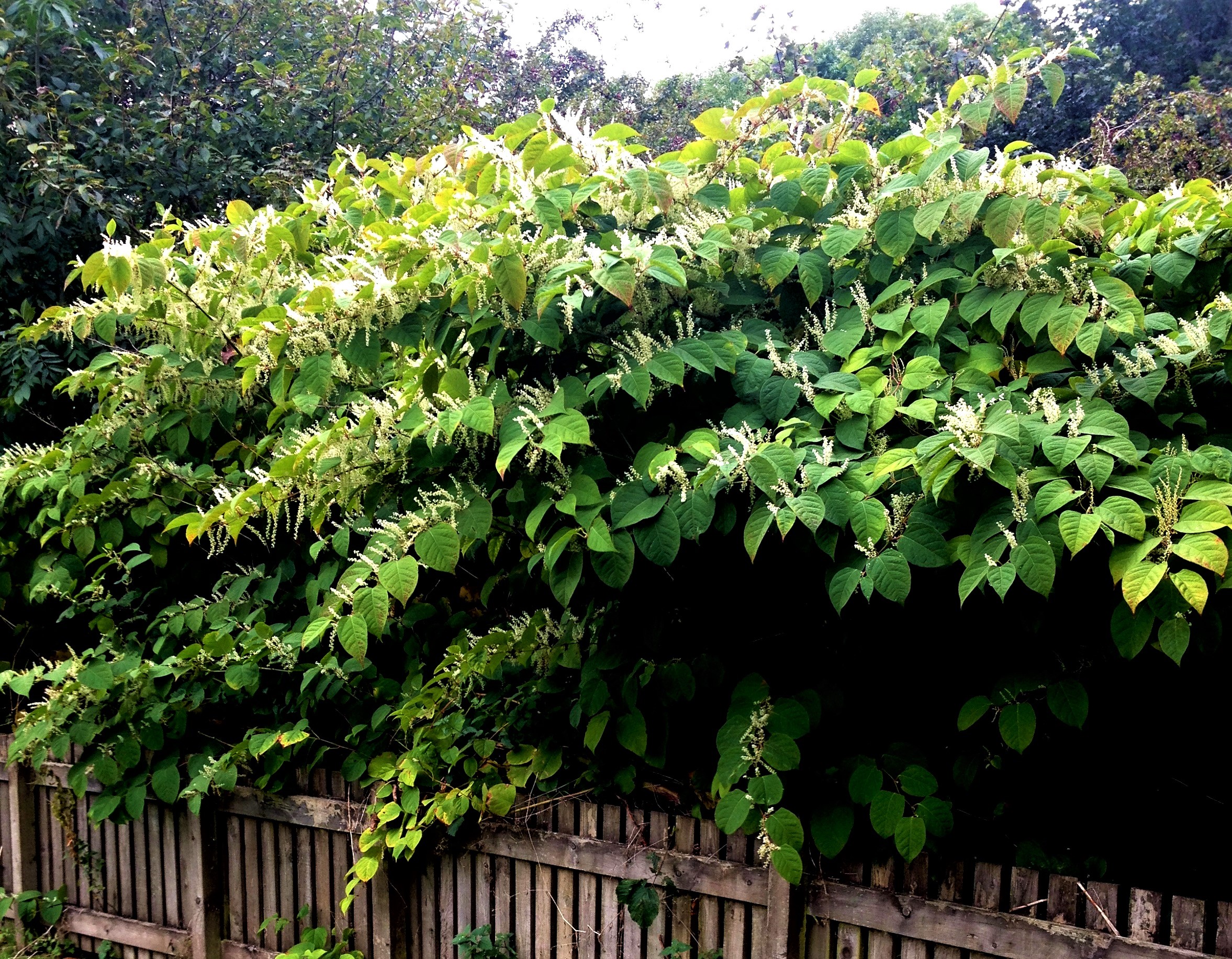
Japanese Knotweed (Fallopia japonica)
Japanese Knotweed is probably the best known, non-native plant species in the UK. Most people will know someone who has had difficulty getting insurance / a mortgage / selling their home / low valuations etc etc; it is really quite incredible the impact this one plant species has had throughout the UK. Whether you agree or disagree with the hype that surrounds this species, one thing that cannot be disputed is the effect it has had on the housing sector over the last decade!
While current guidance is under review by RICS, to some degree the damage has already been done. Like it or not, the presence of Japanese Knotweed makes purchasers very nervous. Japanese Knotweed is still controlled by legislation and our best advice remains to use a reputable specialist and put a management programme in place as soon as you can. This can be done any time of the year, summer or winter, it makes no difference as the control measures can be put in place immediately. While the management of this species does not need to be expensive it should be carried out by someone who is experienced in the management of this species otherwise you may end up throwing good money after bad. KleerKut offers really good budget management options for residential properties which have options to upgrade to a sellers package when circumstances require it.
In the construction industry it is important to note that, irrespective of RICS recommendations, soils containing viable plant parts are classified as controlled waste by both the Environment Agency and also SEPA in Scotland. As such, movement or disturbance of any infested soils must comply with current waste management regulations, with appropriate certification and waste carriers licenses etc being in place. In summary, movement of viable Japanese Knotweed infested soils must be carried out in a controlled manner or you may be prosecuted by the relevant regulatory body.
Key Points
 Legislated non-native plant species
Legislated non-native plant species
 Low valuations / delayed property sales
Low valuations / delayed property sales
 Causes damage / blocks drains / chokes watercourses
Causes damage / blocks drains / chokes watercourses
 Spreads by viable plant and root fragments
Spreads by viable plant and root fragments
 Soils containing viable plant and root fragments are classified as ‘controlled waste’
Soils containing viable plant and root fragments are classified as ‘controlled waste’
 Easily spread
Easily spread

Why use KleerKut?
Man first arrived in Britain about 8,000 years ago and virtually all new land plants that have become established since this date have been brought here by humans. We call these new plants non-native species.
Not all non-native species are bad – it is only a minority that have serious negative impacts on our native British species, our health or our economy. These species we call invasive non-native species.
No they are not. Interestingly the plant species which arguably is often found to be the most destructive, Horsetail (Equisetum arvense) is actually a native plant species. It certainly can still be invasive while being native and also very difficult to manage as many gardeners will testify.
While non-natives such as Japanese Knotweed are legislated to control movement; natives are not legislated because they are native to Britain.
As the name would suggest we specialise in the management of Japanese Knotweed. We do however also manage Giant Hogweed, Himalayan Balsam and other controlled plant species even the lesser known ones. We are not just restricted to land species we also advise on aquatics and semi-aquatics. We also manage and control native species too – in particular the mighty Horsetail.
We can help you find the best way to solve your particular problem. We will not try to upsell or exaggerate your situation – we will simply provide your options / explain your situation and associated risks – then work with you until the solution which is right for you presents itself. Simple!

